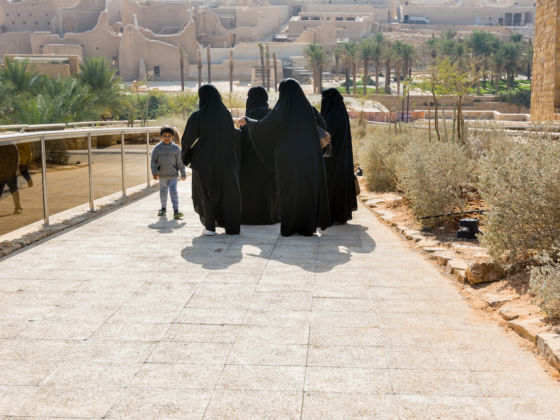“Ladies and Gentlemen, we have just entered Saudi airspace, if you need to change into the appropriate clothing, now is a good time to do so.”
I had heard this announcement would be made on the flight, but I had cast it aside as one of those travel myths; when visiting other cultures, the reality rarely matched what the media, or other people told you.
